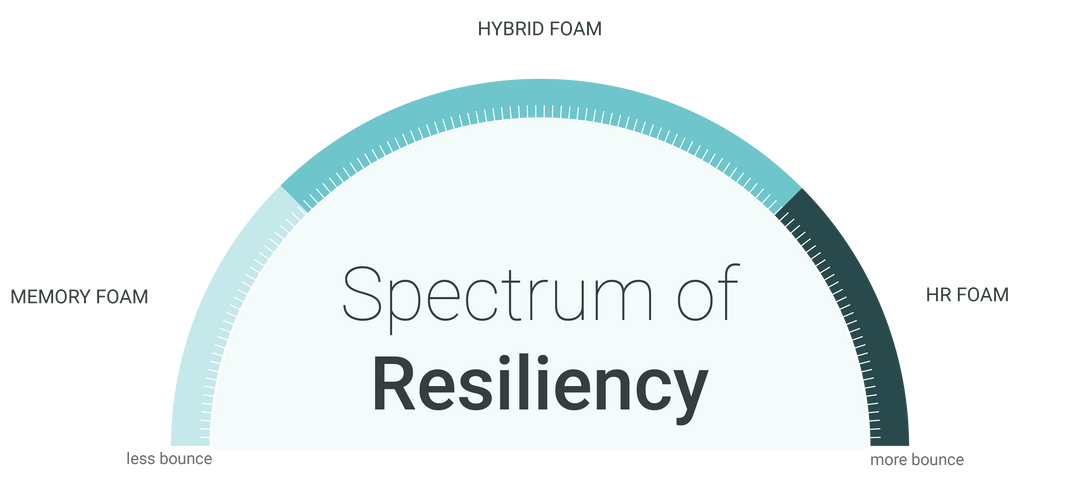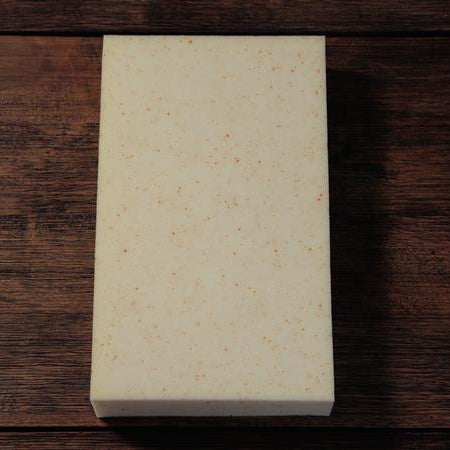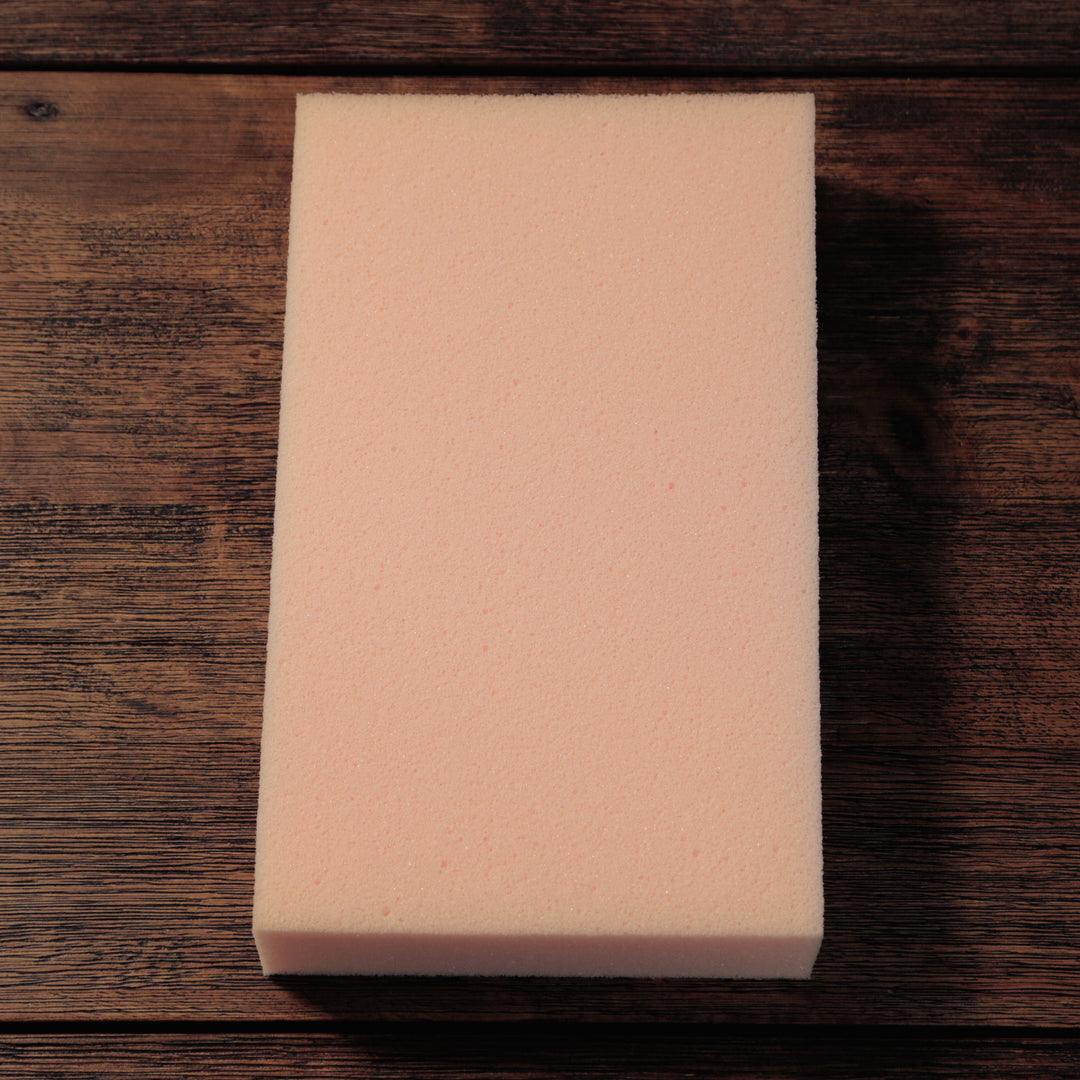Spectrum of resilience
Foam exists on a spectrum. There is an inestimably large number of foam types that could be used to create a multitude of truly unique mattresses. However, for our purposes, we think the majority can be broken down into three main categories.

Hybrid Foam
Better bounce and resiliency than memory foam and more pressure relief than H.R. options, means hybrid foams are designed to be a happy medium. If you want something that’s middle of the road, some combination using this material may be just the ticket. It’s versatile, comfortable, and has found its way into many of our constructions. In fact, we've found ourselves using this foam in mattresses that cater to every position — back, stomach, side, and shifting sleepers.
Moreover, an open-cell design provides a high degree of airflow. Rather than trapping your body heat as you sleep, this design makes your mattress more breathable to avoid over-heating.
Want to see if this foam would work well in your mattress? Design a custom bed here and find out!
Learn about other foam types
Memory Foam
Memory foam has low resiliency and is famous for its
soft, slow recovery and body-contouring, pressure-relief.
High Resilience Foam
At the far end of the resiliency spectrum lies the bounciest foam of them of all: latex-like, high-resiliency (HR) foam.
Conventional Foam
Conventional foam is usually what you'll find in the base of a mattress. It's not necessarily going to have a lot of fancy bells and whistles, it's meant to add structure




